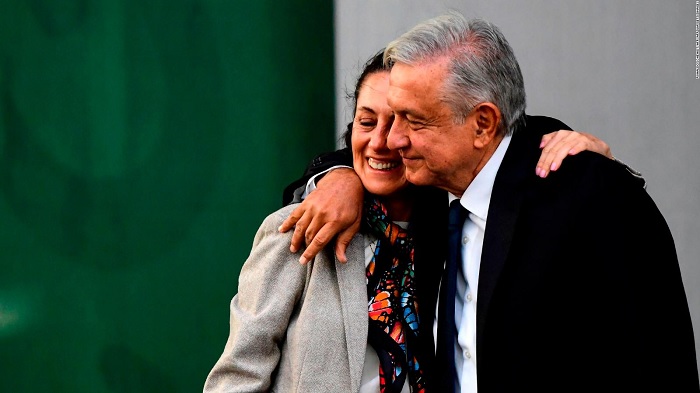Is AMLO’s Legacy on the Ballot in Mexico?
By Allison Meakem,
In North America, much of the world will be fixated on the United States’ presidential election this November. But that contest is expected to be fought between two geriatric white men who have both held the presidency before. In terms of representation and generational political change, neighboring Mexico’s June 2 general election promises to be much more groundbreaking. That’s because the victor will almost certainly be a woman, for the first time in Mexican—or, for that matter, U.S.—history.
Incumbent President Andrés Manuel López Obrador, known as AMLO, is facing a one-term limit after six years in office. But he’s played a central role in his own succession race, securing the nomination of his protégée, Claudia Sheinbaum, as his Morena party’s presidential candidate. Sheinbaum was until recently the mayor of Mexico City but stepped down from her post last summer to hit the campaign trail. She will face Xóchitl Gálvez, a former senator who is heading a coalition of opposition parties.
López Obrador founded the leftist-populist Morena party in 2011 with the express purpose of running for president and maintains great sway over the organization. His 2018 election shook up Mexican politics, which have traditionally been dominated by the centrist Institutional Revolutionary Party (PRI). From 1929 to 2000, all of Mexico’s presidents hailed from the PRI; López Obrador’s immediate predecessor, Enrique Peña Nieto, was also a member of the party. Last June, Morena seemed to breach the PRI’s last defenses—ousting the party in elections in the State of Mexico, the province surrounding Mexico City, where the PRI had been in power without interruption for almost 100 years.
For the time being, many observers in Mexico consider Morena—and its popular president—to be a seemingly unstoppable political force. As of November 2023, López Obrador’s approval rating stood at 66 percent—far higher than the paltry 23 percent enjoyed by his PRI predecessor at this point in their respective presidencies, according to polls cited by the Americas Society/Council of the Americas.
CLICK HERE TO READ THE FULL ARTICLE By Allison Meakem ON FOREIGN POLICY
TYT Newsroom


